Today we’re talking with the editors of the TV series, Poker Face. Those editors are Bob Ducsay, ACE, Glenn Garland, ACE, Paul Swain, and Shaheed Qaasim.
Bob’s been on the show several times, most recently for the two Knives Out mysteries. He also edited Star Wars: The Last Jedi, Looper, Godzilla King of the Monsters, and Rampage, among many others.
Glenn is a fellow editing podcaster himself. He hosts the Editors on Editing podcast, so the pressure is on. His work includes King of California and Halloween.
Paul’s work includes The Unicorn, Brockmire, and Guilty Party.
Shaheed’s work includes A Black Lady Sketch Show, which has been featured on Art of the Cut, The Walking Dead: World Beyond, Modern Family, and Deadwood.
Art of The Cut: Poker Face
Let’s talk a little bit about the collaboration between you. What kind of collaboration were you able to have, and what’s the advantage of working with a team?DUCSAY: We had a pretty screwy situation on the show because Rian Johnson and I were finishing Glass Onion when Poker Face started up, so unfortunately - while we all had a great sense of camaraderie, and we all had a wonderful time working together - we worked in separate spaces.
I was with our feature editorial cutting room at Rian's offices over at T-Street, his production company, and the other guys were in another facility. So our interactions were a little bit different than you might normally have on a show, with one of us being separated - just because of the nature of finishing another film. It wasn't what you'd expect or what you'd want, but somehow, we made it work, and we had a grand time working together.
Was the rest of the team able to speak into each other's episodes? Was the pilot the first thing edited?DUCSAY: Episode Nine was the first episode photographed. It was 95% finished. Then the next episode up - which was the other of the two episodes I cut - was Episode One, which is the proxy pilot for the series. That wasn't really completed at all because there was location photography that was going to happen at the very end of the schedule, because the majority of the show was actually made in New York. We didn't start with the beginning of the show. We actually started with an episode that was quite different from all of the others. The reason that this happened is that Rian Johnson directed the first two episodes photographed, and they just happened to be Episodes Nine and One.
GARLAND: Episode Two was the last one shot because that was also Rian. A lot of it had to do with Rian's schedule, availability, and whether locations were available. A lot of it was decided around guest stars too.
DUCSAY: Interestingly, Episode Two was finished at the end. Also, what remained of Episode One was completed at the same time because they were photographed at the same location.
SWAIN: Yeah, it was quite interesting for me because it was the first time I'd worked in a facility for a year and a half or two years. I've been working remotely at home like all of us were. It was awesome to be back in a facility with a really great team. I was last in, so Shaheed and Glenn had already started cutting. I walked up, and they were very warm, very welcoming. We immediately all just got on. I said, “What's the tone of the show?” They said, “We don't really know. We haven't seen anything,” because they hadn't seen anything that Bob had cut because they were still beavering away over at T-Street.
We just ended up head down, just cutting our own episode. We would talk between the three of us. I would say, “Oh Glenn, do you want to come and have a look at some of my work?” They'd have a look. I'd have a look at theirs and we'd all be going, “Wow! All our episodes are incredibly different tonally.” When we eventually watched one of Bob's episodes, we said, “Wow, that's really different.” Initially, we were a little bit concerned: “Have we picked the right performance? Are we doing the right thing?” But I think we stuck with our guns and went for the best performances. As it turned out, one of the beautiful things about the show is that every episode is so different. You didn't tonally need it to be consistent because you've got a consistent character with Charlie, played by Natasha [Lyonne] and she was the consistent voice throughout the entire season. So, with each side of Natasha, we could go nuts with a bit more comedy or a bit more drama.
GARLAND: The first episode that we were able to watch was Episode Nine, which is quite dark. It's brilliant, but it's got a very dark tone. My first one was episode four, which is more heightened. I think all of our first episodes – between Shaheed, Paul, and I – were tonally in a different ballpark, so we were left wondering whether we’d done the right thing. But we quickly realized when Rian arrived that he was not going for something where tonally each episode was the same. Each episode was its own little mini-movie with Charlie Cale/Natasha Lyonne being the glue that held it all together.
QAASIM: I think all of my colleagues are being very cool about the scenario, because I actually found it quite funny that Glenn and I - especially when you talk about Episodes Four and Episode Three - had episodes that were quite light and charming. I had an episode, The Stall, starring Lil Rel, who’s a fantastic comedian.
So the funny part about it was when we did eventually get a chance to see the episode that Rian and Bob were working with, we were all quite excited to see – how’s this going to play out where we are? Episode Nine was obviously what Glenn shared with us. It’s the first episode we saw, which is absolutely the darkest episode of the season.
So all three of us had a moment where we said, “Ooh, I don’t think we are tonally in the right ballpark here.” But then ultimately realized, as everyone discussed, that each episode was treated as an independent movie or as its own independent murder film.
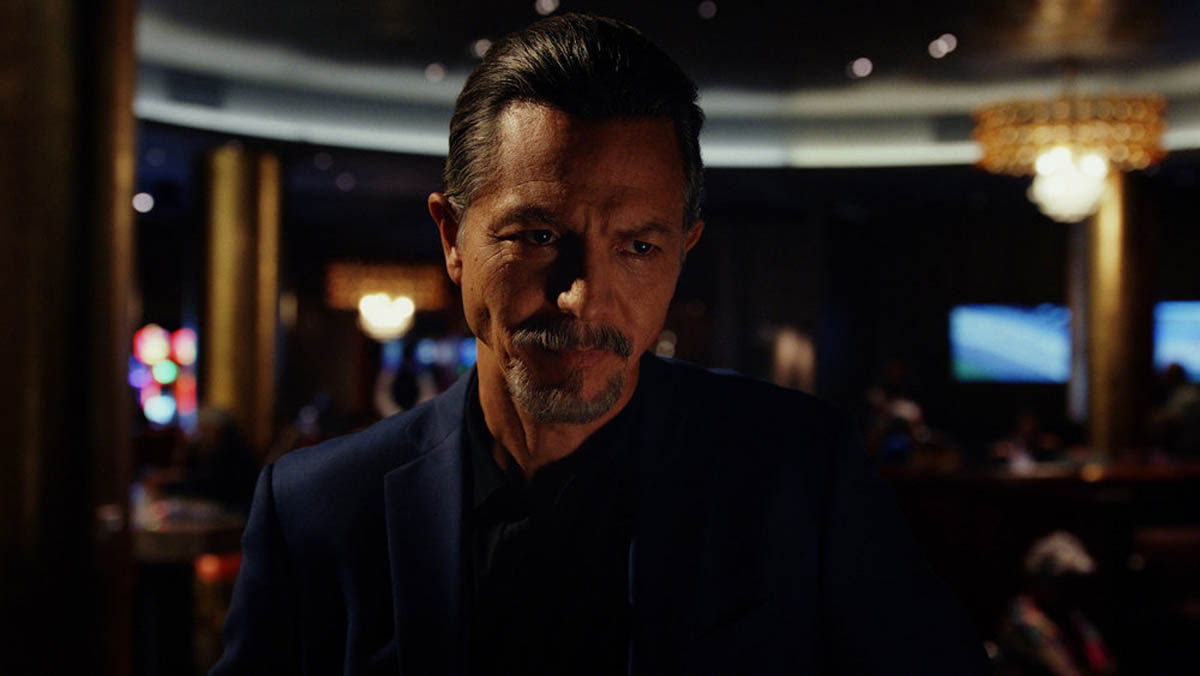
GARLAND: We could get into trouble if we tried to alter our episodes to match the same tone as Episode Nine.
But on most series you do want to keep it tonally consistent. You are trying to figure out from the pilot what the roadmap is, and a lot of what we do is to try to follow the roadmap of the pilot. We did not have that on this. But the brilliant thing about the show is that we don’t have to stick to one particular roadmap. Each episode has its own unique personality.
SWAIN: At the start – when I was cutting dailies – I didn’t really have much interaction with the guys, because everyone has their head down, apart from the pleasure of having lunch with each other. After the dailies were cut and we were in the editor’s cut scenario, we would say, “Okay guys, have you got five minutes? I wouldn’t mind showing you this to get your thoughts on it and see how you feel.” One of the most wonderful things about this was that nobody has a massive ego. Nobody got defensive. We were all very generous with our view and accepting critique. I felt very comfortable saying, “Hey guys, here’s my work. What do you think?” They’d say, “Oh yeah, that works,” or, “Have you tried this or that,” and I’d say, “Sure, that’s a great idea.” These are experienced editors, so if I can grab some of their knowledge and it improves the cut and improves the show, then why wouldn’t I take it on board?
Then they would say, “Okay Paul, you come to my suite.” So I’d get in the edit suite and give them the same respect and feedback.
Bob, were you able to help with the best way to collaborate with Rian, in terms of how he would like to collaborate, or is that not something you were able to do? Did you just figure that with their experience they were going to figure it out?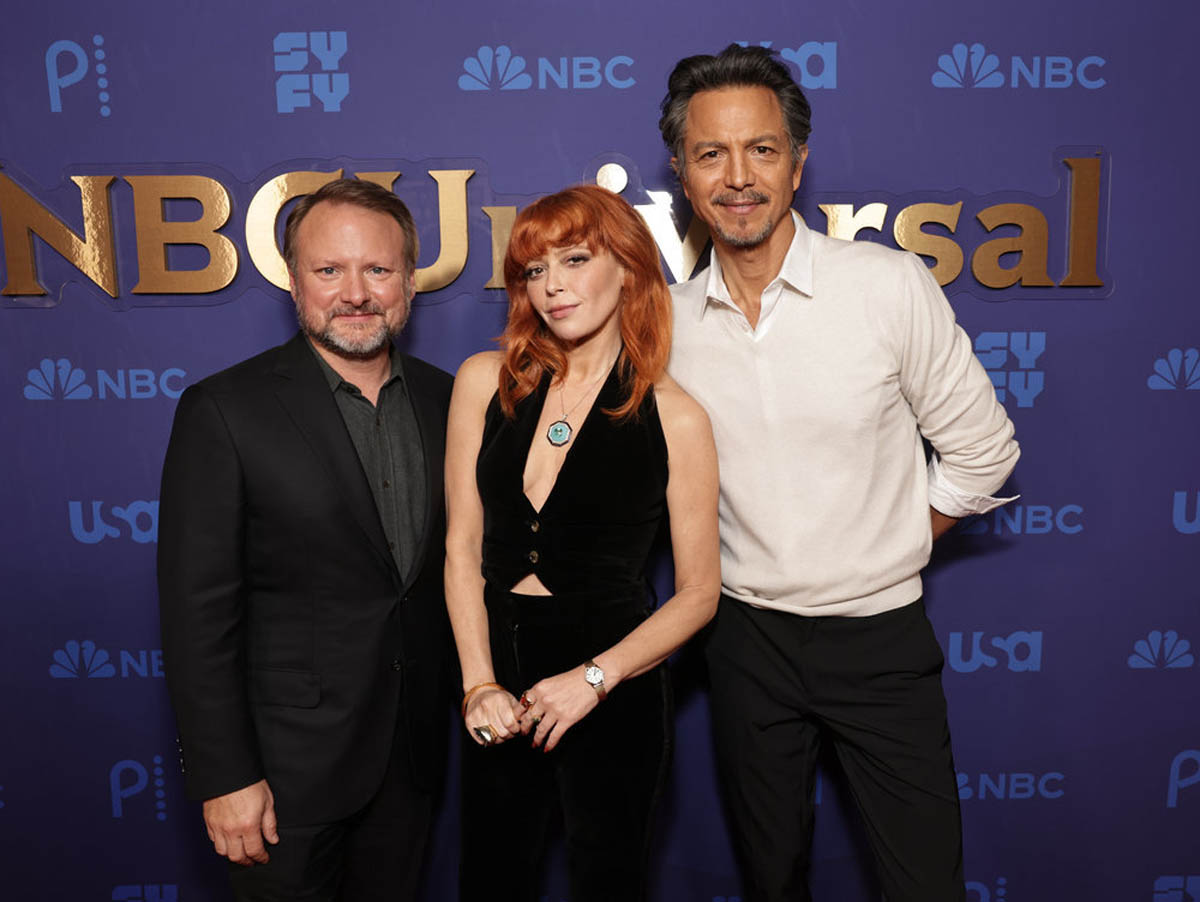
Pictured: Rian Johnson, Natasha Lyonne, Benjamin Bratt
DUCSAY: We had some really minor discussions about it and quite honestly, Rian’s got a very solid point of view. He’s very communicative and very collaborative. He’s not somebody you really have to figure out much. But the one piece of advice that I offered was to keep it simple. Those are words I live by regardless of working with Rian or not. It’s something that he’s a big advocate of. He’s a very big proponent of making sure that there’s a real reason to cut.
This is something that we all know. There’s nothing particularly surprising about it. But sometimes we get seduced by trying to insert some energy or style or whatever it happens to be. The truth of it is that if you’re not moving the story forward and you’re not developing character or solving a particular problem, it’s a valuable question to ask. Rian is a big advocate of simplicity in general. Across the board, he applies that to the cinematography, the shot selection, and everything. It’s just to serve the story and the character.
I think that’s obviously an incredibly broad piece of advice. But I don’t think there was anything else that I said beyond that, with the possible exception that Rian loves to see a first cut without any music in it. That’s rare among directors. That’s another thing that isn’t specific to him, but it’s certainly something that he really believes in. He’s someone who wants to watch things without the support of music early on.
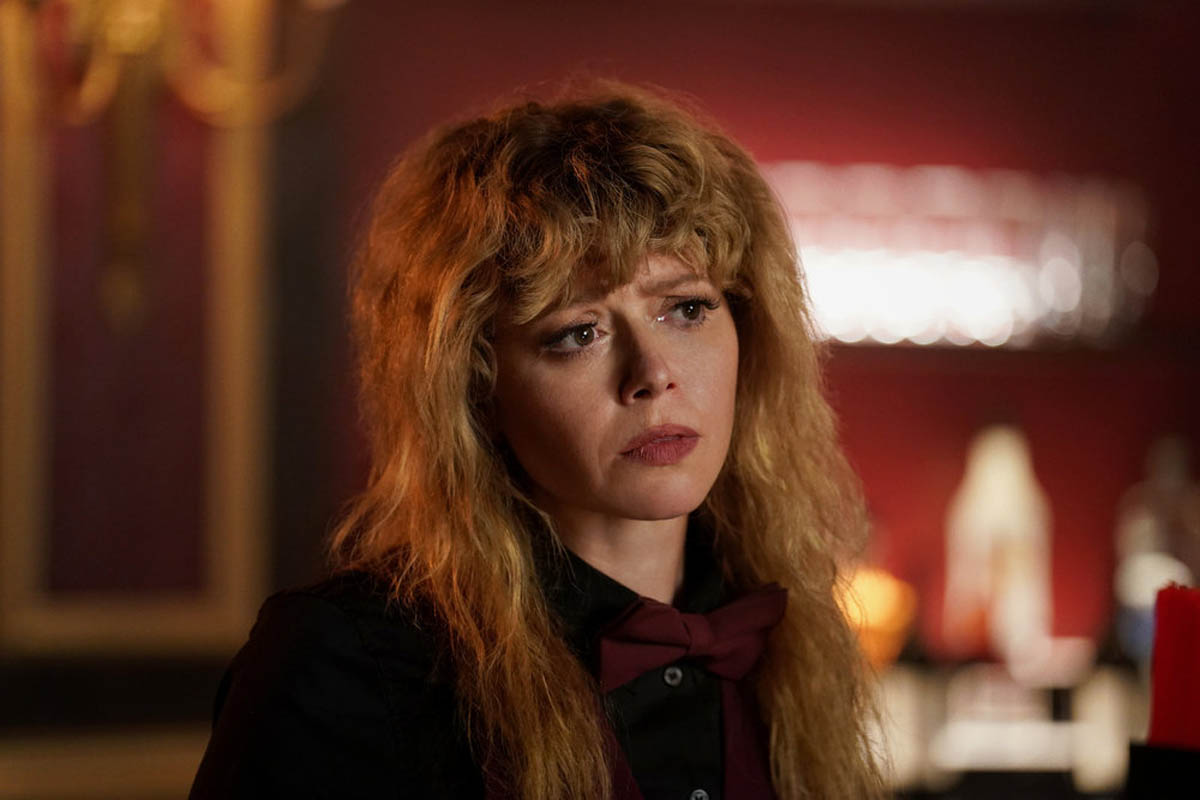
GARLAND: I think that was hugely helpful, especially because we want to keep everything very clear, and we want to lead the audience along the path. But we’re so used to filling up so much sound on these shows.
We would show it to the directors of these episodes when they weren’t Rian, and they would expect it to have music. But then we would strip it all out for Rian when he was going to start his producer pass. He understands story and character so well, and really knows exactly what is important and what’s not. It’s about clearing out what’s not important and focusing on what is.
SWAIN: I did leave one piece of music in, even though everyone’s saying, “Just take all your music out, take it out.” There’s this end montage at the end of one of my episodes – Exit Stage Death – where you’ve got Tim Meadows and Ellen Barkin doing their big theatrical piece. I got this beautiful track - Adagio for Strings - and I loved it. Of course it’s very synonymous with Platoon, but I said, “I love this. I’m going to stick it in.” It worked beautifully. I think Glenn was saying, “Oh you got to strip out the music.” I said, “I’m going to leave it in.” Luckily, Rian loved it. He said, “This is great.”
It stayed in for a couple of months. I said, “You sure you don’t want me to take it out?” He said, “No, it’s great. It works.” Unfortunately, at the end of the day there were some clearance issues with it, so we had to replace it.
The only other thing that I remember Bob telling us was that a barometer of how we are doing is when someone is sitting behind you. In this case, it was Rian. His body language and his remarks are a barometer of how well the edit is going. With Rian, if it was going well, his laughter would go up about five octaves. It would have this really high-pitched laugh. I could hear it coming from Glenn’s suite. I could hear it from Shaheed’s. I’m thinking, “Oh, they’re doing really well. I hope he laughs in mine.” Luckily, he did. But then conversely, there’d be times when I’d show him something and he wouldn’t say much. There’d just be a sigh and I’d think, “Okay, alright. Let’s work on that.”
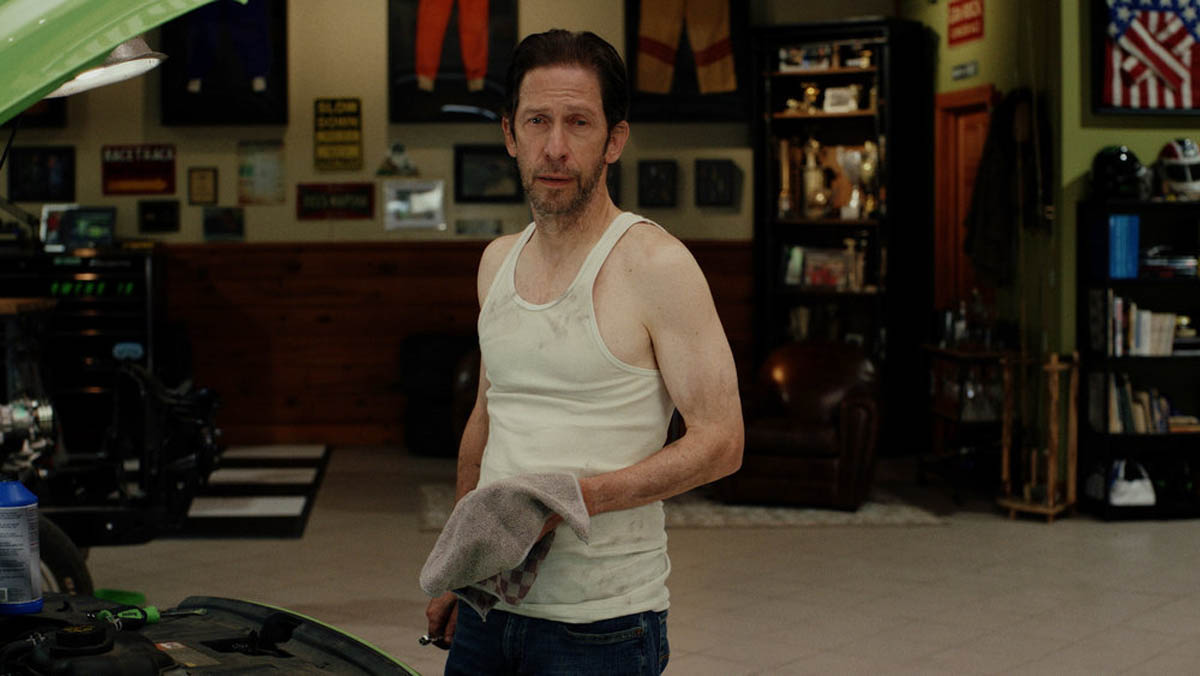
You’d show him your cut and he would basically work from scene one all the way through, scene by scene. I remember asking Bob, “Is this how he works on features?” Bob said, “Oh yeah. He’ll go through every scene and do his pass.” I was quite relieved that it wasn’t just my episodes. This was part of Rian’s process.
We’d send him a link and he’d watch it at home. But then he’d come and I would say, “Oh, do you want to watch it down again?” He’d say, “Nah, let’s just work on it.”
He’s a lovely warm guy. But when his head switches to business mode he doesn’t mess around. There’s not a lot of small talk. We’d have a coffee together, we’d say “Hey, how you doing? Great. Okay. Let’s go.” Then he’s on it. As an editor you have got to be on your toes because his mind is so switched on. He’s thinking 10 steps ahead. He’d be throwing out ideas, suggestions, and requests. You’ve got one ear on Rian and one ear on your speakers, and you’re trying to cut while he’s speaking. You just have to be on top of your game. It’s fun. It keeps you on your toes.
GARLAND: I would assume that he would have watched our editors’ cut or the director's cut once. He’d come in and he’d know that episode inside and out. He was so knowledgeable about what was working, what wasn’t working, and how to improve it.
SWAIN: I remember there was a time when I snipped out a line because it just wasn’t landing. He was watching the scene and I don’t think he’d read the script for a long time, for at least a month or two. He just says, “There was a line there.” I said, “Oh yeah, I took it out.” He says, “Can I just see it?” I showed him and he said, “No, take it out.” But the fact that he remembered - like his brain is so switched on about every component and element of the script - the things that were shot, and the cut.
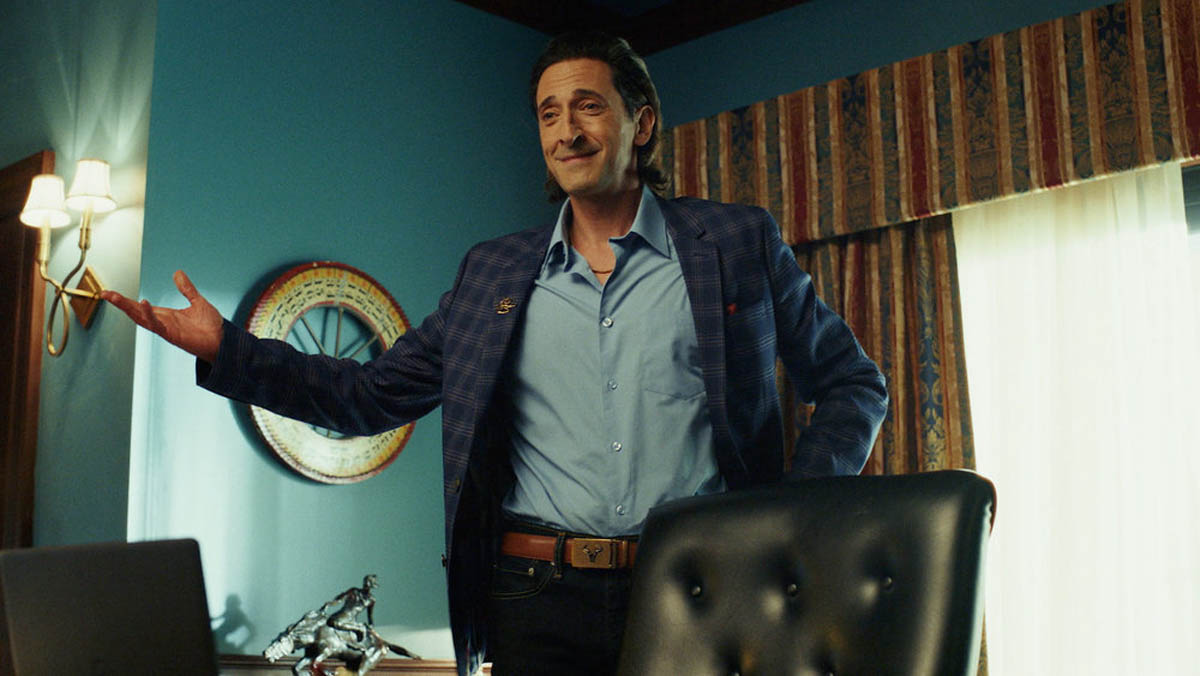
QAASIM: It was a great opportunity for someone like me who – unlike some of my colleagues – has spent most of my career editing television. It was quite nice to have the opportunity to work with a director or a filmmaker who was willing to go through cuts without score. Because most of the time, in television, you really have to fully score the shows before presenting it to the director or producer.
I think it actually serves the project, especially Poker Face. Because if it works without music, then it’s definitely going to be very powerful once we put the score in.
Was it uncomfortable for you at all? Have you edited with no score before?QAASIM: I have had experience in it. But not a lot of experience in television, because we really have to spend a lot of time loading it up. I think we really benefit from that because then we can spend a lot more time making sure that the picture is immaculate. We spend so much care on these shows. The storytelling is so detailed. It’s important that all pieces play, and we get through the episode in an efficient manner. I think all that really makes the show captivating to watch.
GARLAND: Music can be a crutch. It can really hide when edits aren’t working. It’s really smart of Rian to want to watch it without music and to see it as a blank slate. I think that also allows him to start thinking in terms of what would be good here and what wouldn’t be good here.
He also mentioned that he wanted to try as much as possible to be very sparse with music, to not rely on music. If we could make the episodes work without music, that would be fantastic. Certain scenes and certain sequences were really important to try and make them play without music.
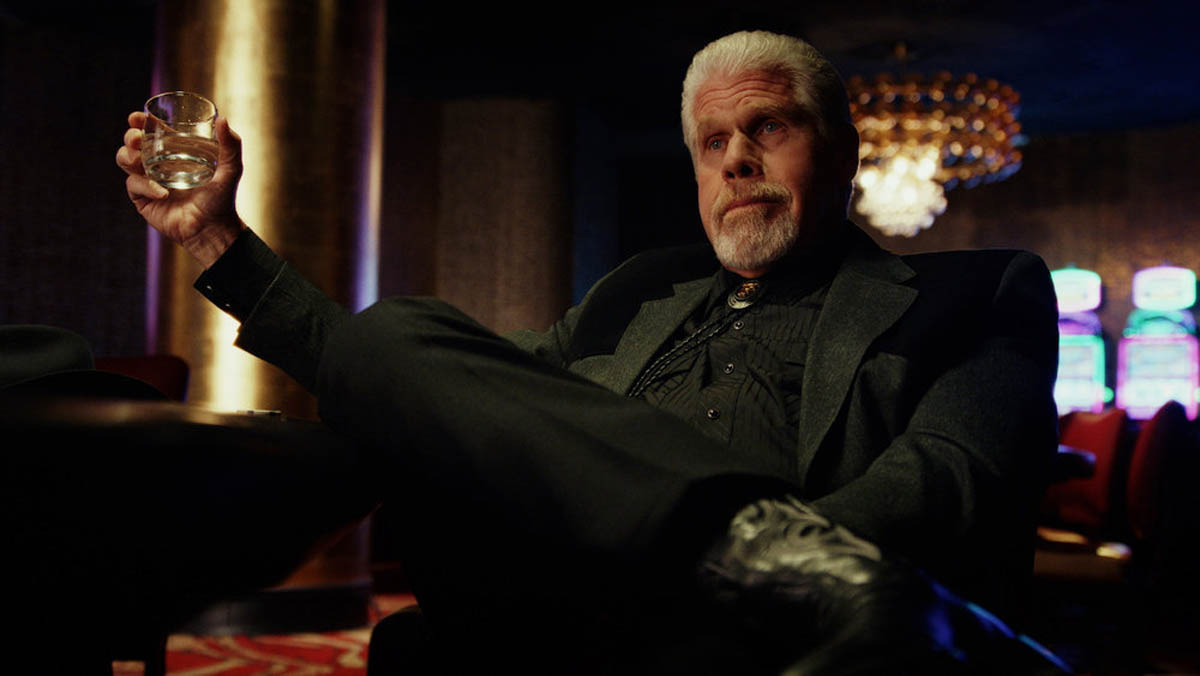 One of the things that I love about the show – but it goes counter to the one thing we all learn as editors, which is that you need to stay ahead of the audience – is that the audience is ahead from the beginning. The show reveals who did it from the beginning. How do you maintain your ability to stay ahead of the audience, or give the audience something to look forward to?
One of the things that I love about the show – but it goes counter to the one thing we all learn as editors, which is that you need to stay ahead of the audience – is that the audience is ahead from the beginning. The show reveals who did it from the beginning. How do you maintain your ability to stay ahead of the audience, or give the audience something to look forward to?QAASIM: I think that’s one of the things that we modulate in the show as an editor. Episode Eight, The Orpheus Syndrome, which Natasha Lyonne directed - there was a Hitchcock inspiration to it. Hitchcock talks about how he found that there was suspense in the audience understanding all the elements of the danger. I actually think we modulate between having the audience be behind and the audience be ahead. For example, they always know who the murderer is.
But in Episode Eight, if you recall the Nick Nolte character, Arthur, had so much trauma because a woman died on his set. Cherry Jones was the murderer. She was disclosing this information, but even though we had seen her murder, we didn’t see that she was the cause of the death on set that basically transformed Arthur’s life.
There’s a combination of giving the audience all of the information so they understand the murder in detail and can enjoy the ride when Charlie/Natasha is putting together all the pieces, while simultaneously holding back some information, so that we can pull a card and the audience can say, “Oh wow, I didn’t realize that,” and we can have all these turns. I believe we’re actually playing both of those simultaneously on the show.
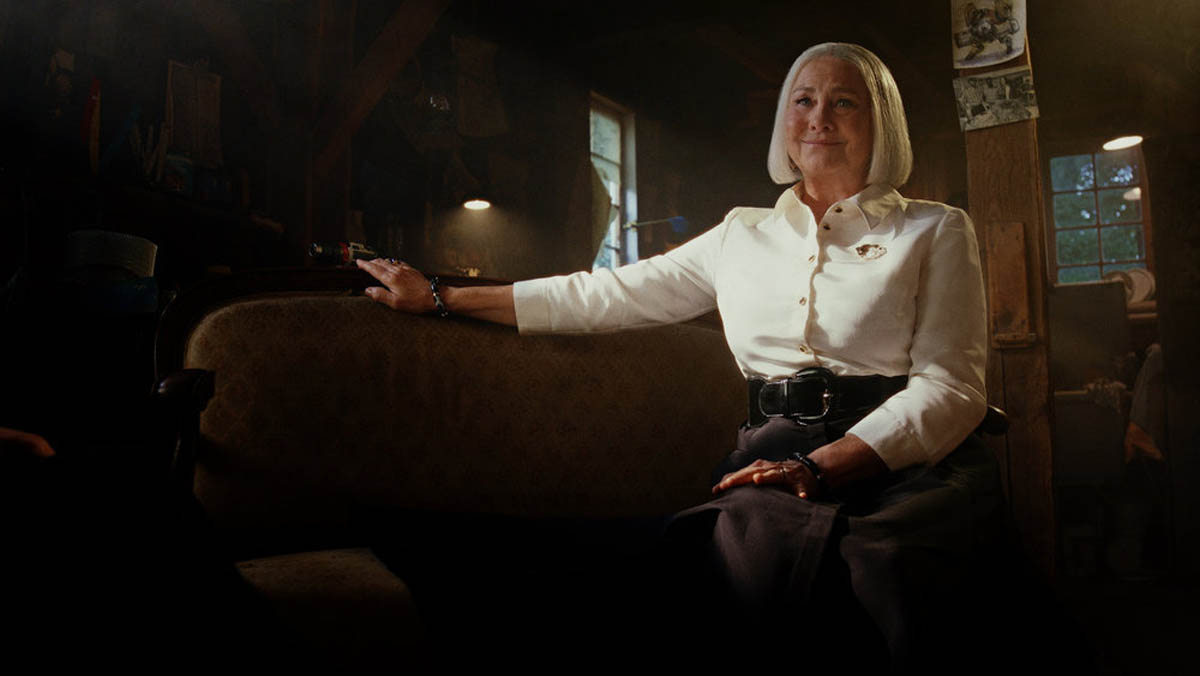
SPOILER ALERT
GARLAND: Absolutely. The scripts were so well written. It gave us such a great roadmap. There is this formula, which is a love letter to Colombo, which always tells the audience who the murderer is. You know how they did it, but you don’t know how Colombo is going to solve it. In this case, how is Charlie going to solve it? But there’s always little twists, like in Episode 10, we – spoiler alert! – find out that Cliff was the one who pulled the trigger. Or in Exit Stage Death you realize that it was both of the actors who ended up murdering the wife. They take the formula, and they twist it a little bit, and I think that makes it really fun and enjoyable. Charlie’s always on the run, there’s a ticking clock. She has to get out of there. Is she going to solve it before she has to run?
SWAIN: In my other episode, The Future of the Sport, there was another twist, because that was the only episode where nobody actually died. When I read the script, I thought that I love the fact that they keep changing it up, keep surprising the audience, and keep it fresh.
END SPOILER ALERT
Who edited Episode Two - which was kind of like the first episode after the set-up?GARLAND: I did.
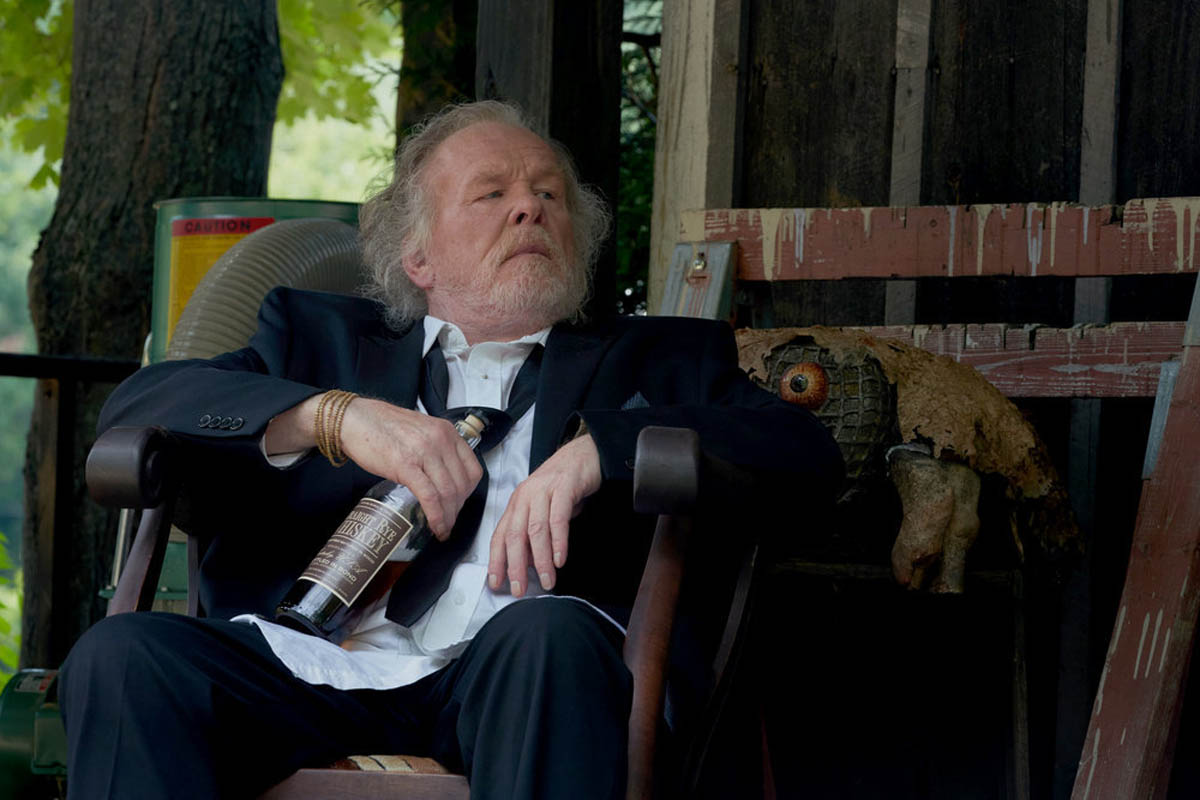 Was there any thought of teaching the audience how to watch the series?
Was there any thought of teaching the audience how to watch the series?GARLAND: It was the last episode that we cut. Rian was definitely speaking in terms of the fact that this is the episode that teaches people how to watch the show. You get a taste of it in that plot brilliantly. But Two was the one where you really realize, this is the formula and this is how to watch the show.
It was very important with that one to be very clear and very specific about what was happening when. It’s great that Rian was the director because he knew exactly how he wanted to calibrate that episode so that people understood going forward how to enjoy the show and how to watch it.
A lot of the time, the editors are teaching the director how to deliver the show so that it feels “on brand.” It doesn’t seem like that was an issue here with the non-Rian directors.GARLAND: It was a first season show too. With first season shows it’s a little less about teaching the directors how to deliver a show. I think that Rian had a lot of communication with the directors. He was very clear about the show. Again, the scripts were really well written. It was very clear what the show was from reading the script.
An important trait for an editor is their ability to see the truth. Here, you’re working with a character whose main trait is to be able to tell the truth from a lie. Talk to me a little about your sense, when you’re cutting this show specifically or any show, about finding those moments when you think the actor is being true.DUCSAY: This is the whole thing, right? I don’t think it was this way when I started, but over the years I’ve just become endlessly interested in character. It’s my favorite thing to execute. How do you hone a character? How do you take the beautiful stuff that these great artists have given you in the form of dailies, and at the very minimum not reduce it in some way?
The thing that you’re speaking about is truth. An actor being truthful to their character and the world that they’re in. I think it’s just so hard to define. I think the reason that I’ve become so much more interested in it as my career has gone by is because I understand it better. I don’t really even know how to articulate it. You’ll watch something, and you’ll see it, and you’ll say, “That's the truth or that’s a lie.”
I think it’s particularly interesting if you do a feature or the second year of a series where you’ve learned so much about what the character is. Then you can see it instantly. You can define something that doesn’t fit or isn’t truthful. I just find that endlessly interesting. It’s quite hard to articulate because I think for myself and my ability to deal with something like that has only really come with time and experience and focusing on performance.
I also think that a huge amount of the question you’re asking is determined by casting. It’s something that Rian is particularly good at, certainly with all the features that I’ve done with him and also in this show. He has an acute sense of understanding of character and who is just right for the role.
Once that happens, the question of, “Does this character give a truthful moment?” becomes much easier to deal with, because you’re already starting with an artist that’s been chosen that fits the role. That is what the writer-director had in mind when they were putting pen to paper.
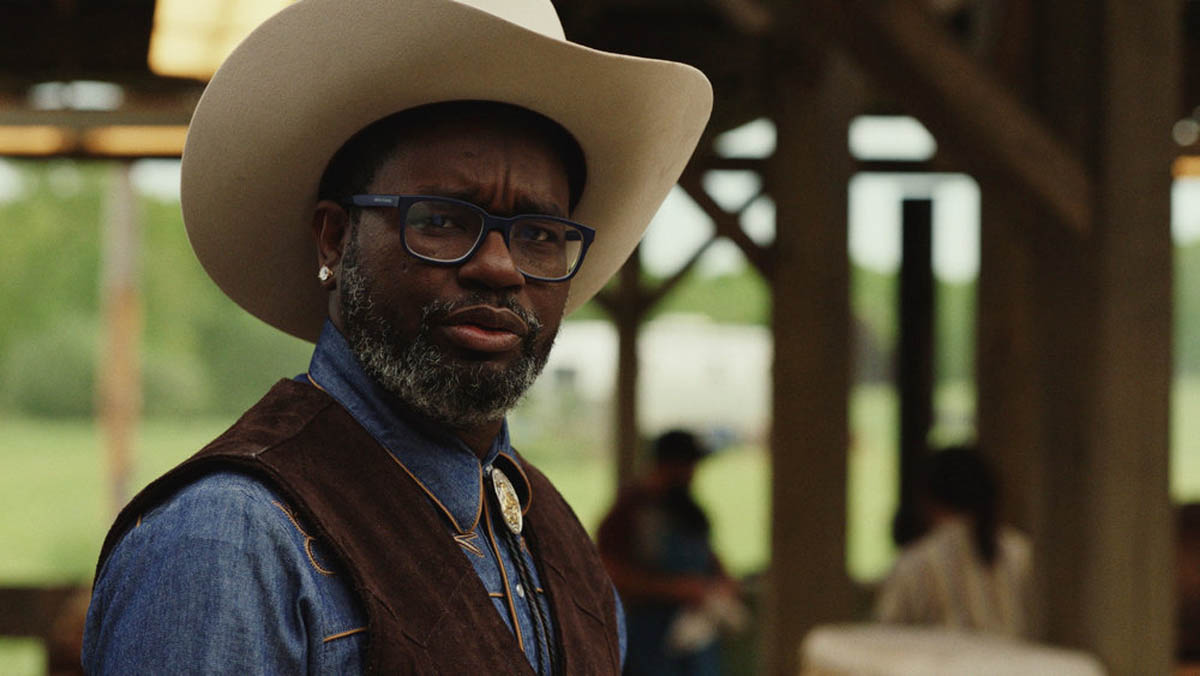
GARLAND: A lot of it is just about having a finely crafted bullshit meter – just like Charlie. You just listen to a line for maybe six or eight takes and you ask, “Which one do I believe the most?” A lot is also based on what the other character had said right before that. But the fun thing about this show too is that you need to have a line that is slightly off when Charlie says, “Bullshit.” Charlie is so good at detecting bullshit that she can always tell. But then there’s other times that you want the line to be slightly off, so that it’s fun for the audience to say, “Oh, do I buy that line? Charlie doesn’t buy that line.”
It’s a very interesting thing about the truth. People aren’t always saying what they really mean. There’s always subtext under the surface. There’s truth behind what the character wants and desires, but not necessarily in what they’re saying.
DUCSAY: When you sit down behind the Avid, you need to have connection and empathy toward the characters. You sit down with these fantasy characters. When you’re engulfed in watching an episode or a film, you come to believe that they’re real living people. I think it’s much easier to find your way to stick to the truth when you have that connection and empathy.
SWAIN: When I’m looking through the dailies, picking takes and performance, I’m a very instinctive editor. I base my selection of a performance on how I feel about listening to this person speak this line. I also think that it’s helped by the fact that I’ve moved countries a number of times and lived a bit of life. I’ve met so many different people in my life – different cultures, different nationalities. This is the fourth country I’ve lived in, and I think you learn something about human psychology and behavior. I apply that to my craft when I’m listening to take after take. I’m thinking, “Oh I’ve met somebody like this before.” Then I would pick the most honest performance for my editor’s cut.
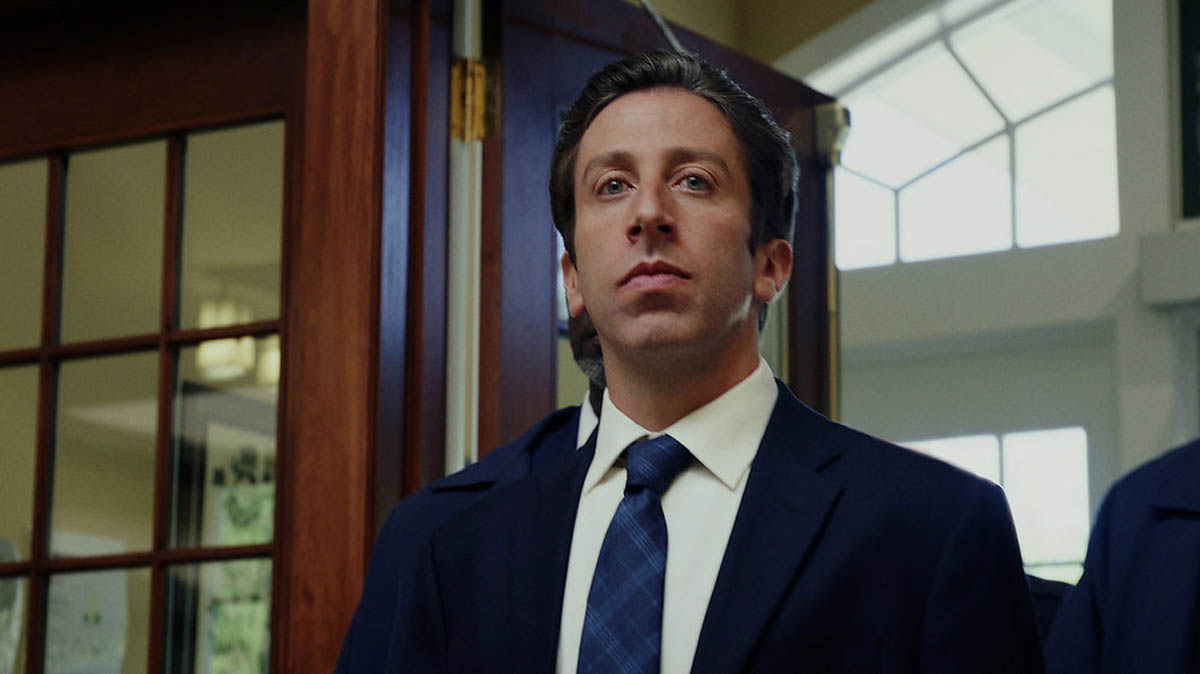
QAASIM: Editors are empaths in our own right. Glenn reminded me of a really funny moment in Episode Five, Time of the Monkey, when Simon Helberg is playing an undercover FBI agent who works in witness protection. He is delivering one of his witness protection folks to the old folks home. He’s essentially pretending to be his nephew. Charlie’s watching him and he says, “All right Uncle Ben, I’ll see you later,” and gives him this incredibly awkward hug. The character Ben’s reaction conveys, “Why are you touching me? You’re an FBI agent.” It’s just like the most obvious thing that he’s not his nephew. Then he turns to Charlie and says, “I’m his nephew.” She just looks at him and says, “Sure.” It’s one of the funniest moments.
Were there any issues with your episodes where you realized something needed to be fixed? Where you and Rian or the episodic director figured out a solution to move things forward?SWAIN: At the end of Exit Stage Death, when Kathleen and Michael have been busted, they’re in the dressing room. Unbeknown to them, there’s a microphone hidden in the room. It was originally scripted to be hidden under a wig that’s meant to look like a dog. We saw the dailies and we said, “Oh man, there’s no way these guys would fall for this wig looking like a dog.” We were meant to set up the dog through the episode, with sound design and showing it in camera, purely for the end blow.
We cut it and Rian said, “This isn’t going to work. It’s not believable.” So they did the pickup shoot and Rian called the director and said, “Hey I’ve got an idea. Let’s blow up this whole idea that it’s meant to be a dog. Let’s just lean into the ridiculousness of this bad wig. Just draw two eyes on a piece of paper, and a tongue, and stick it on the wig.” So Ian McDonald, the director, sketches these cartoon eyes and tongue and sticks it on the wig. It was clearly meant to indicate, “Oh shit, we’ve been busted. What the hell is this thing in the basket?” Anyway, nobody told me about the plan. So I get the dailies, look at the shot, and say, “That doesn’t look like a dog. What are they thinking?” Then I spoke with Rian and he told me to lean into how silly it is. It actually worked much better than originally scripted. That was just one of those moments where Rian came up with an idea, threw it out there, went for it, and it worked.
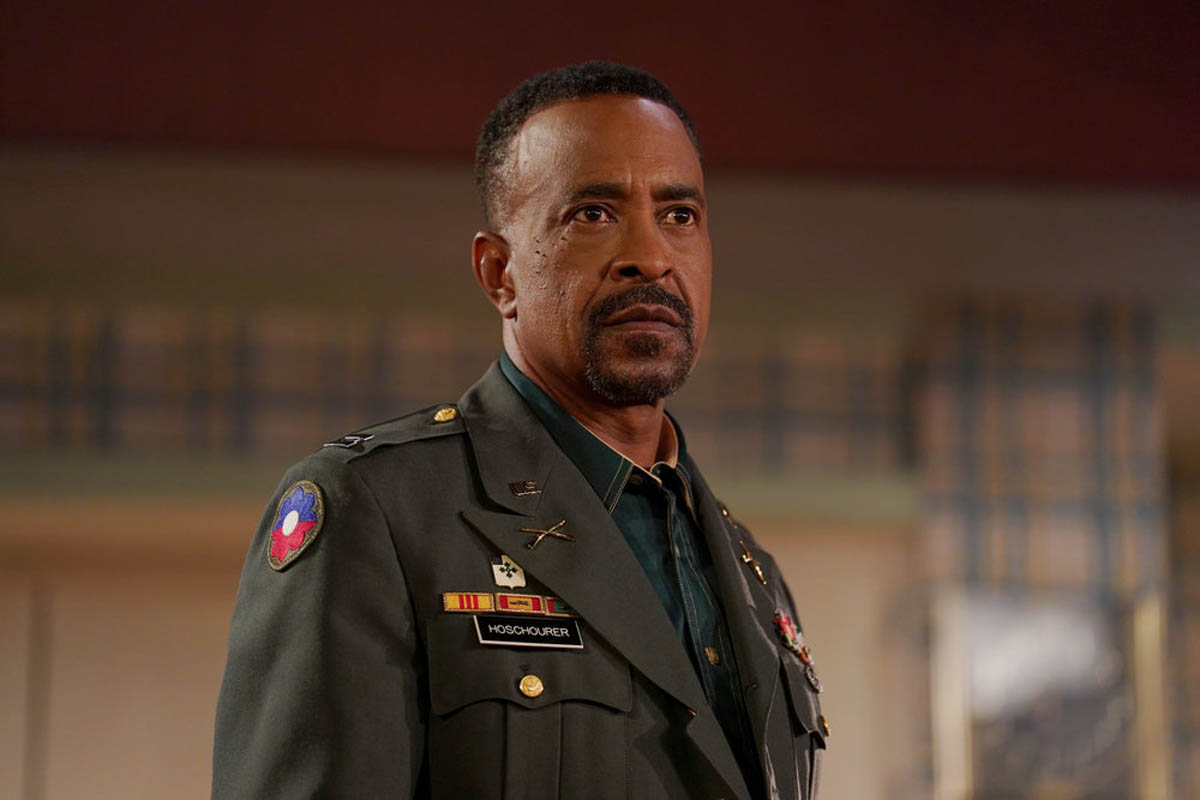 But note to directors and producers: tell your editors the plan!
But note to directors and producers: tell your editors the plan!QAASIM: Some directors do that on purpose. I’ve had directors tell me, “I intentionally told you nothing because I wanted to see what you came up with.” I actually quite like that, because they’re trusting your creative feedback. Sometimes, there’s an additional idea that could be brilliant.
I was actually thinking about another funny moment in the show. In Episode Three, The Stall, Charlie runs into an extremely obnoxious dog. She’s at the gas station and this dog jumps into her car. She can’t get rid of it. She’s wrestling with this dog, but she eventually decides that she’s just going to hang out with it. The dog farts, it barks, it’s mean, and it loves wacky conspiracy radio.
It’s a really funny scene, but it didn’t start there. We initially cut the scene with the dog and it just wasn’t quite funny. This is a testament to Rian – to his genius and his creative thought process. He came in one day and he just said, “What if the dog is just constantly barking?” We went back and forth until we found the frequency of it – between too much barking and not enough. There was this one moment of intense barking that we found where everyone started laughing and we though, “All right, we got it.” It's interesting how sometimes you need to tune a comedy beat so precisely. Ultimately, we got the joke out of it.
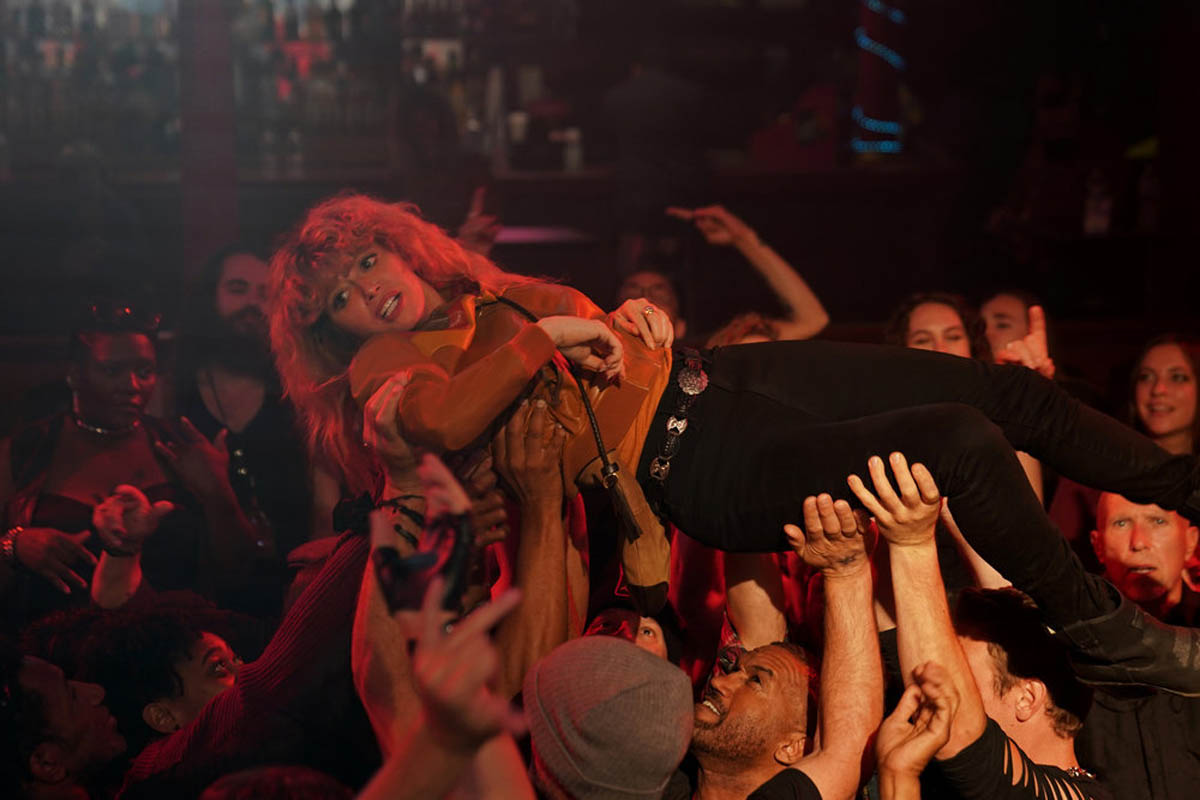
DUCSAY: So much of the job is dealing with a myriad of tiny little problems all the way. There’s all these tiny little things that you do when you’re putting together a sequence, a scene, a reel, or the whole episode or movie. It’s really just mundane, but all of those tiny little things add up over the course of cutting a show. It’s the job, right? Every moment of, “Is this truthful? Does this moment work? Oh God, they didn’t get coverage of this? How are we going to make this work?” It’s what everyone who does what we do experiences on a daily basis. But the good thing about working with Rian is that the number of dramatic issues is exceedingly small. The guys will attest to this. They solved all the big problems in writing.
QAASIM: Refining ultimately becomes quite powerful. I had a dance coach tell me something I always remember when we’re working. We were working on a routine, and toward the end, were doing this tiny, detailed stuff. He’d always say, “You’re just dropping pennies in a bucket. You can’t buy anything with a penny. But over time, if you keep dropping those pennies in a bucket, then you can really purchase something.” I always remember that. Shout out to Sonny Watson!
GARLAND: There are times on shows where it’s a big dramatic thing, but I would concur with Bob. It’s all the little things you do along the way that add up to something much greater than all the pieces. The whole is much more powerful than all the stuff that leads up to it.
SWAIN: I find that when we present our editor's cut to the director, they often don’t realize all the little fixes we’ve been doing along the way. They just go, “Oh wow. I shot this brilliantly.” I’m thinking, “Oh yeah, on some takes, but on others, we had to split screen or time ramp or replace audio.” We’re always fixing little things or improving things or helping things along the way. That’s our job.
GARLAND: Little things can do a lot. I remember when I was working on the finale with Rian, we were having Cliff [LeGrand] on his way to try and find Charlie. It’s this montage of all the stops along the way, where we reiterate, “Oh he just missed her here or he just missed her there.” It’s Cliff’s journey over these ten episodes. At about the same time, Rian and I say, “Oh, we need cards to see the days.” So we had a lot of fun going, “How many days can we stretch this out to?” Now we’re on day 75. Now it’s 365. Making the days longer and longer added to the comedy.
The main thing I want to say is that I want to be in an edit room with these three gentlemen very soon, because I just love them to death. It was a fantastic experience. Also, shout-out to my assistant Greg London, whom I’ve worked with for many years. He’s just fantastic. He makes my job so much easier because he’s got my back. It makes it so I can focus on being creative as much as possible.
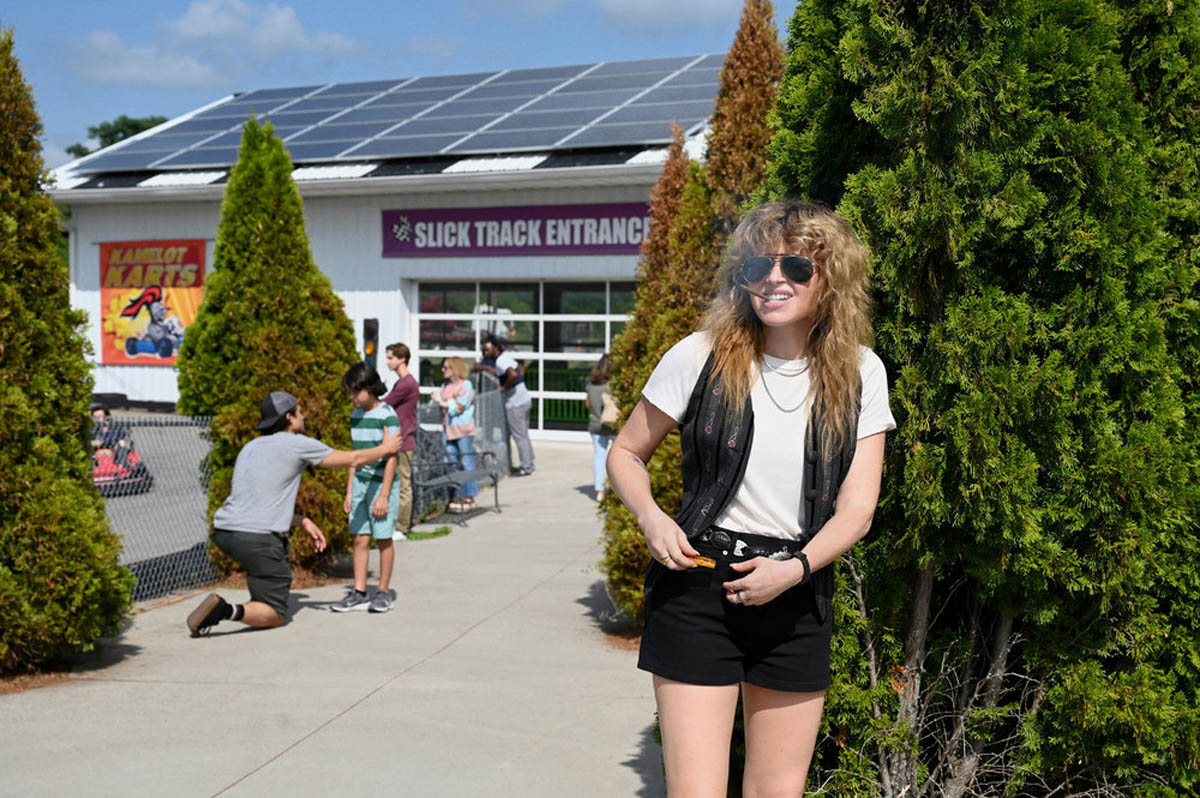
SWAIN: I would like to shout out my assistant, Colin Laurent-Bixler who did a fantastic job, as did the other guys’ assistants. Also the show was beautifully shot by Jaron [Presant], Christine [Ng] and Steve [Yedlin]. We have what they gave us. We only create magic because they’ve given us wonderful footage and wonderful performances. The whole crew were fantastic to give us such wonderful footage. So big shout out to the crew.
QAASIM: I'll definitely give a shout out to Aaron Campbell, my assistant, as well as Cameron [Angeli – Post Producer], Vinny, Anastasia [Moore - Post Production Supervisor], and Justin M. Hill. Also, Jake our apprentice editor. We had an incredible team.
SWAIN: With the things those guys have to do these days – and it’s a shame because they’re so busy being the technical machine behind us – it’s hard to get them in the edit suite to watch what we do, to mentor them, to talk them through why we cut a certain way. I like to try and give my assistants scenes to cut. One, because it makes their day a bit more interesting, and two, it develops their skills. Even though I’ve been doing this for years, I get better and better the more I cut every project. I’m learning something new or tweaking my craft and process. If I can help assistants improve theirs by giving them a scene to cut, it makes me happy.
DUCSAY: My first assistant was Sam Bollinger. I’ve worked with him for a really long time, and he’s amazing. He had a lot to deal with on this project because we were also wrangling the feature film. He taught me what act breaks are and how they work. So big shout out to Sam!
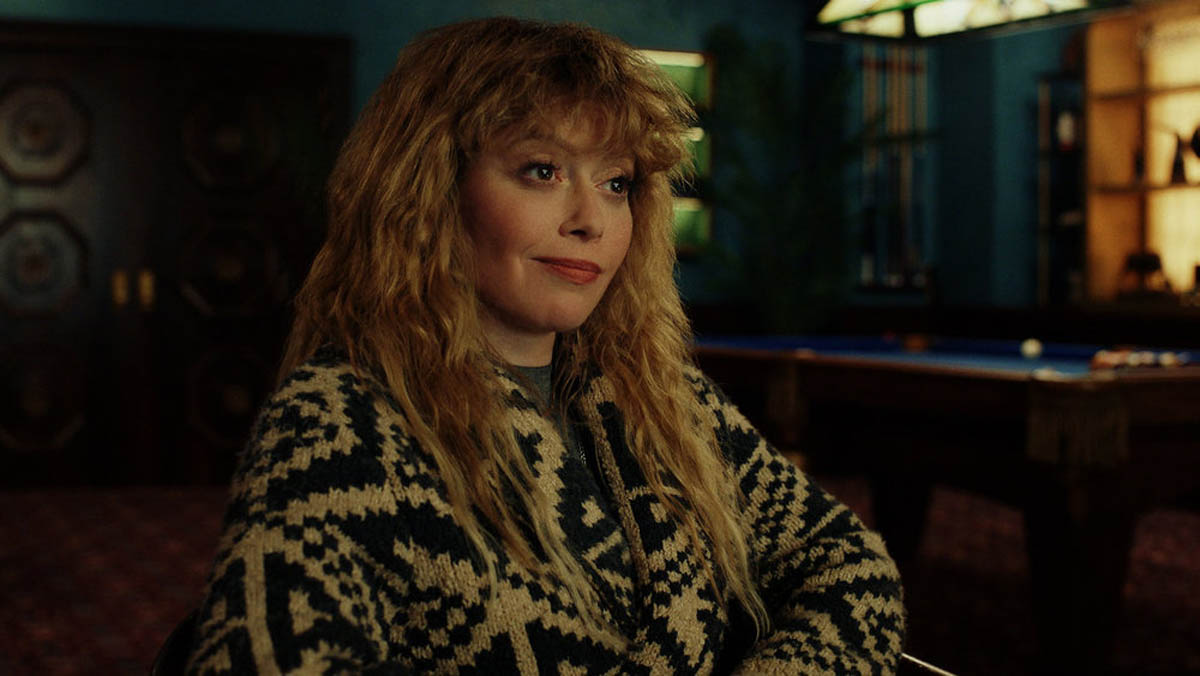
GARLAND: I do love what you touched on, Paul. We are always learning. That’s one of the great things about this job as editors. Each project, each scene, each actor helps us develop our skills even better. That’s what keeps it exciting. You’re always learning, you’re always getting better, you’re always improving.
QAASIM: Also, with the constant change of technology, editing has quickly evolved into one of the most powerful creative parts of filmmaking. I think that’s important to acknowledge because we are doing an editing podcast here. Last thing – watch the show! Check it out on Peacock if you haven’t seen it. The first episode is free.
Natasha’s fantastic. The show’s fantastic. It’s a fun ride. Gentlemen, thank you so much for your time.






